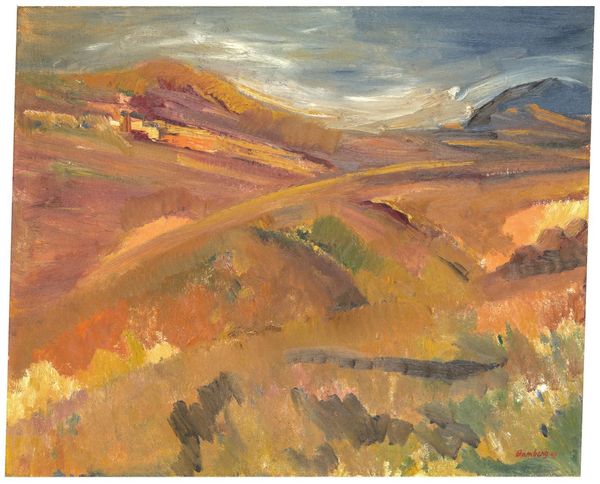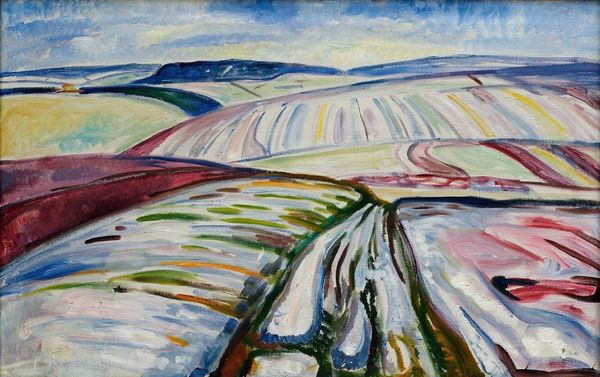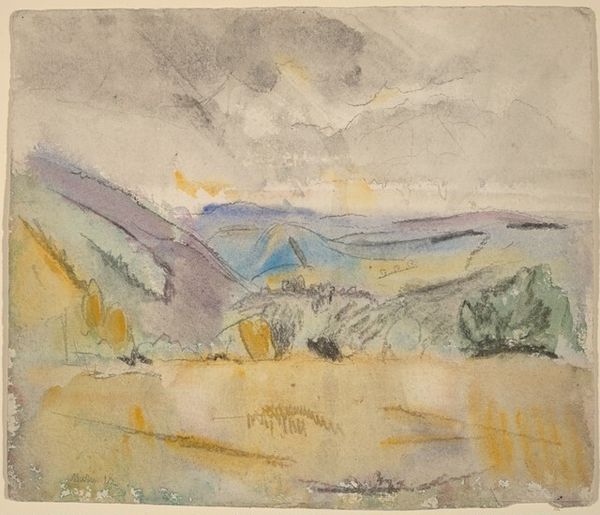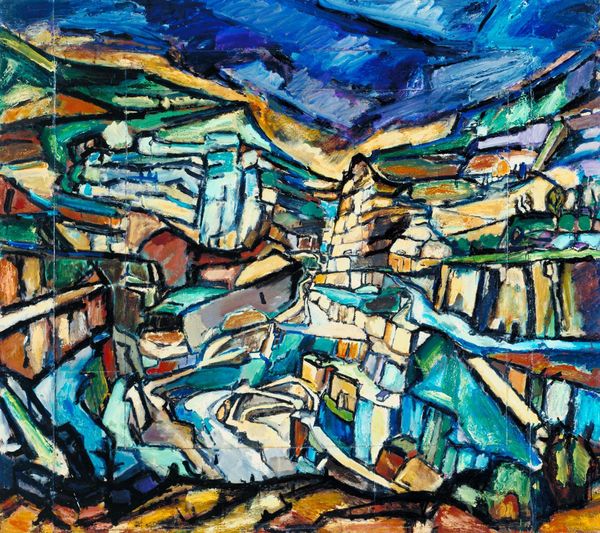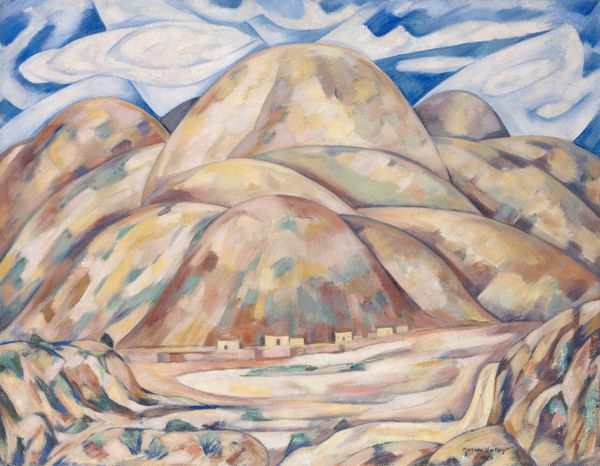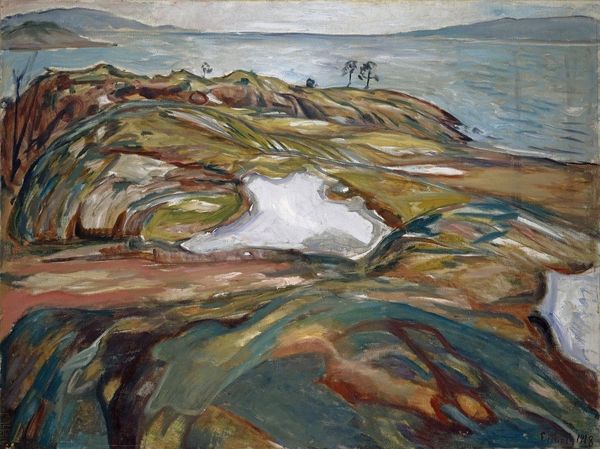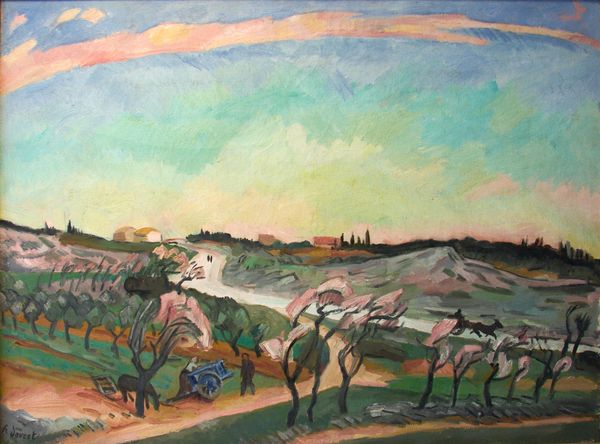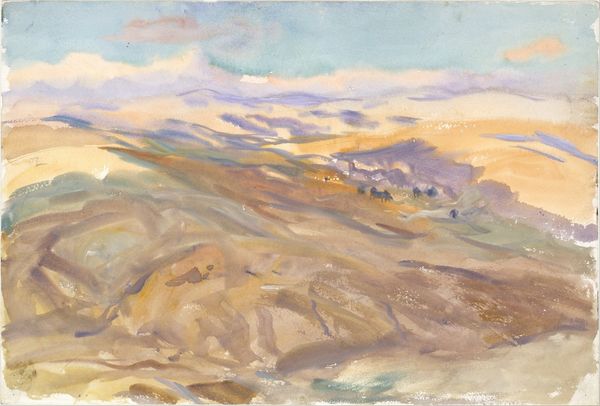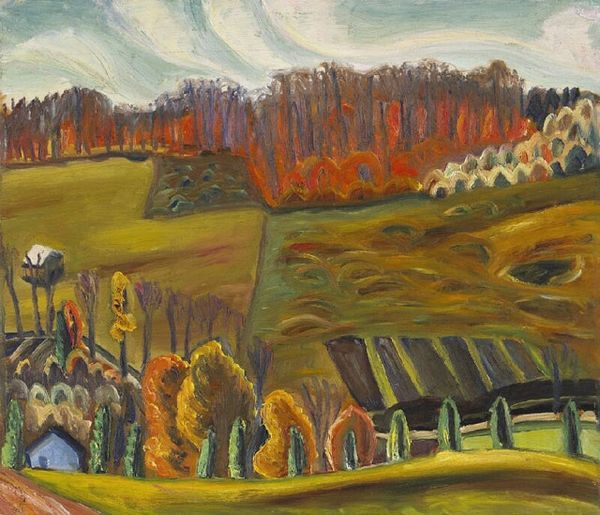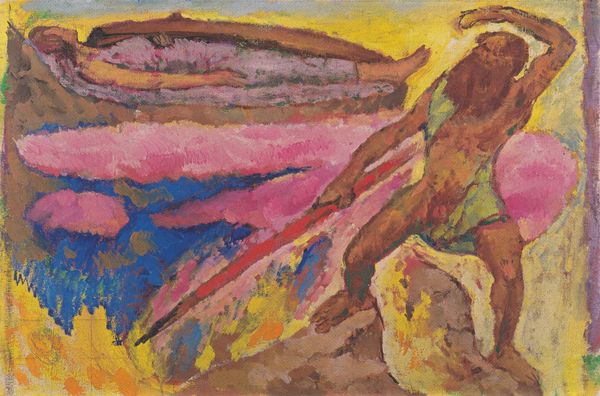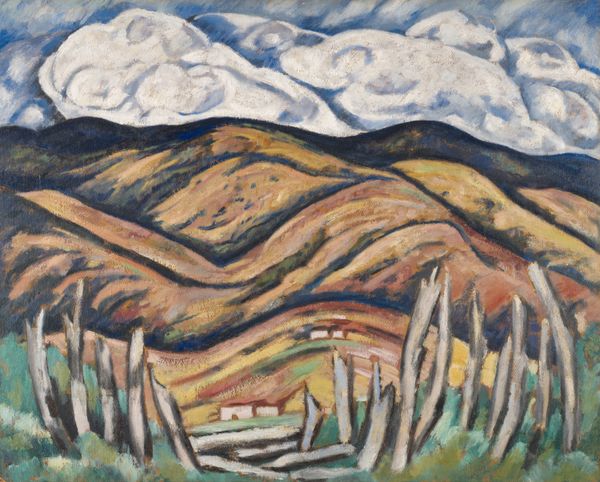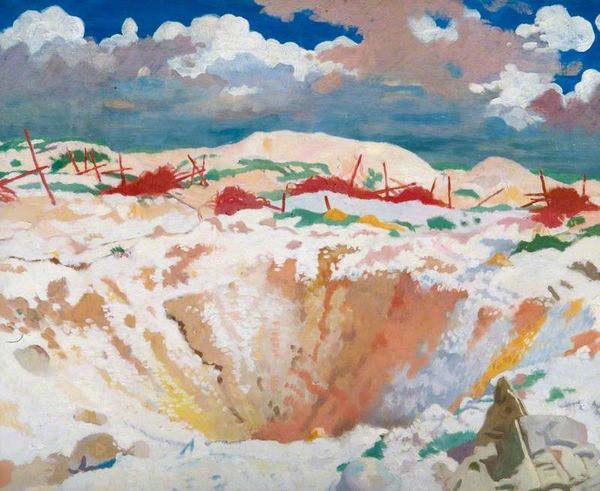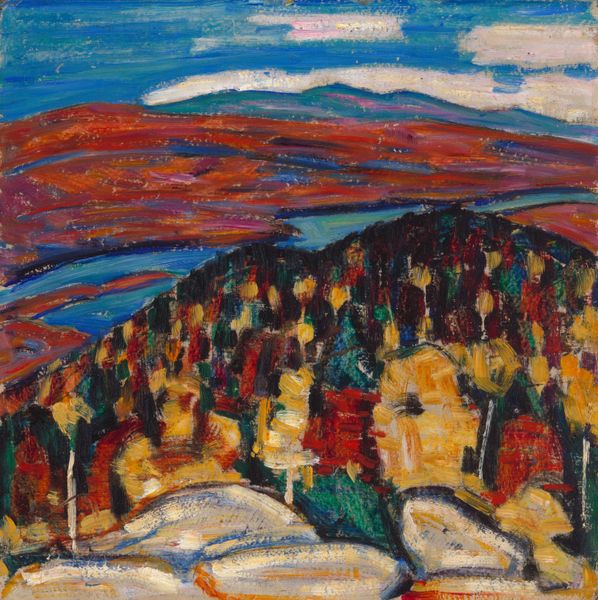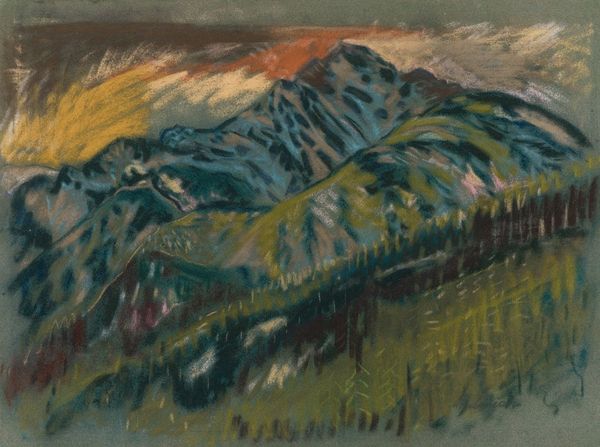
Copyright: Georgi Kovachev,Fair Use
Editor: Here we have an Untitled acrylic painting from 1993 by Georgi Kovachev. It has a real sense of energy; the sharp angles and vibrant colours create this almost fractured landscape. What do you see in this piece, from your perspective? Curator: Well, this "fractured landscape", as you put it, immediately brings to mind questions of representation and reality. Landscapes are never neutral; they are always seen and depicted from a specific point of view, often reflecting power dynamics. Think about who owns the land, who benefits from it, and whose perspectives are excluded. Editor: That’s a really interesting point. I hadn’t considered the idea of perspective as a power dynamic. The landscape, with its flattened planes, reminds me of early modernist painters grappling with industrialisation's impact on our connection to nature. Curator: Exactly! It could be interpreted as a reaction against traditional, romanticized landscapes, critiquing the ways in which nature has been exploited and commodified. Considering the post-communist context in which this work was produced, could we see it as a commentary on the reshaping of Bulgarian land and identity? What does it mean to claim a landscape, both artistically and politically? Editor: So, the painting could be seen not just as an aesthetic expression but also as a statement on socio-political realities? I'm used to landscape painting having natural, even organic, colour schemes and themes. Curator: Precisely! And consider the use of those colors. They may evoke something natural but also suggest the artificial, bringing up this dialogue. It's also essential to ask ourselves: What and who are these vibrant landscapes *for*? Editor: I see, that completely changes my understanding of the painting. It's much more than just a landscape; it's a loaded cultural artifact. Curator: Indeed. This reminds us that art isn't created in a vacuum; it's deeply intertwined with the world around us. The next step is considering who holds those artistic conversations and which artistic languages become "accepted".
Comments
No comments
Be the first to comment and join the conversation on the ultimate creative platform.
